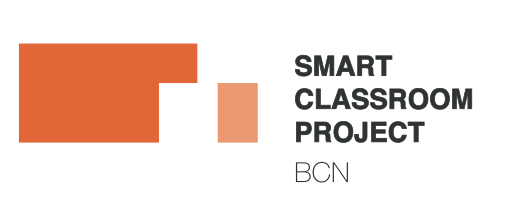Design of learning spaces based on scientific evidence

Smartclassroom
Design of learning spaces
Scientific evidence
Smart Classroom Project conducts research and provides advice and assessment in the scope of learning spaces.
Smart Classroom’s main objective is co-designing, implementing and assessing the organization and structure (interior architecture and design) of classroom models, as well as the subspaces that form them and the resources that fill them, paying special attention to the didactic, invisible integration of ICT, in order to redesign their spaces and improve learning conditions.
Its methodology is based on three aspects:
Space/Environment: student-centric approach (well-being and learning).
Pedagogic: focussed on learning based on scientific evidence.
Digital: invisible presence of digital tools in learning processes.
The progress made in the scope of education and the emergence of new pedagogic proposals and strategies make it necessary to focus research on what changes should be made to the configuration and organization of learning spaces (mainly classrooms and the subspaces that form and surround them), in addition to the conditions, dynamics and methodologies developed in these spaces.
The latest approaches to schools and current educational needs require the configuration and implementation of new learning spaces.
Smart Classroom was created in response to the need to reconsider the learning spaces necessary to implement new educational methodologies and, above all, to offer physical and emotional well-being to their users.
Smart Classroom applies scientific research to shape these changes.
Smart Classroom Project mainly focuses its activity on educational and learning environments.
Smart Classroom Project’s evidence-based innovations foster a new solid stage of education, customized for each learning community, generating impact on both the public and private education systems to improve the learning experience at schools.